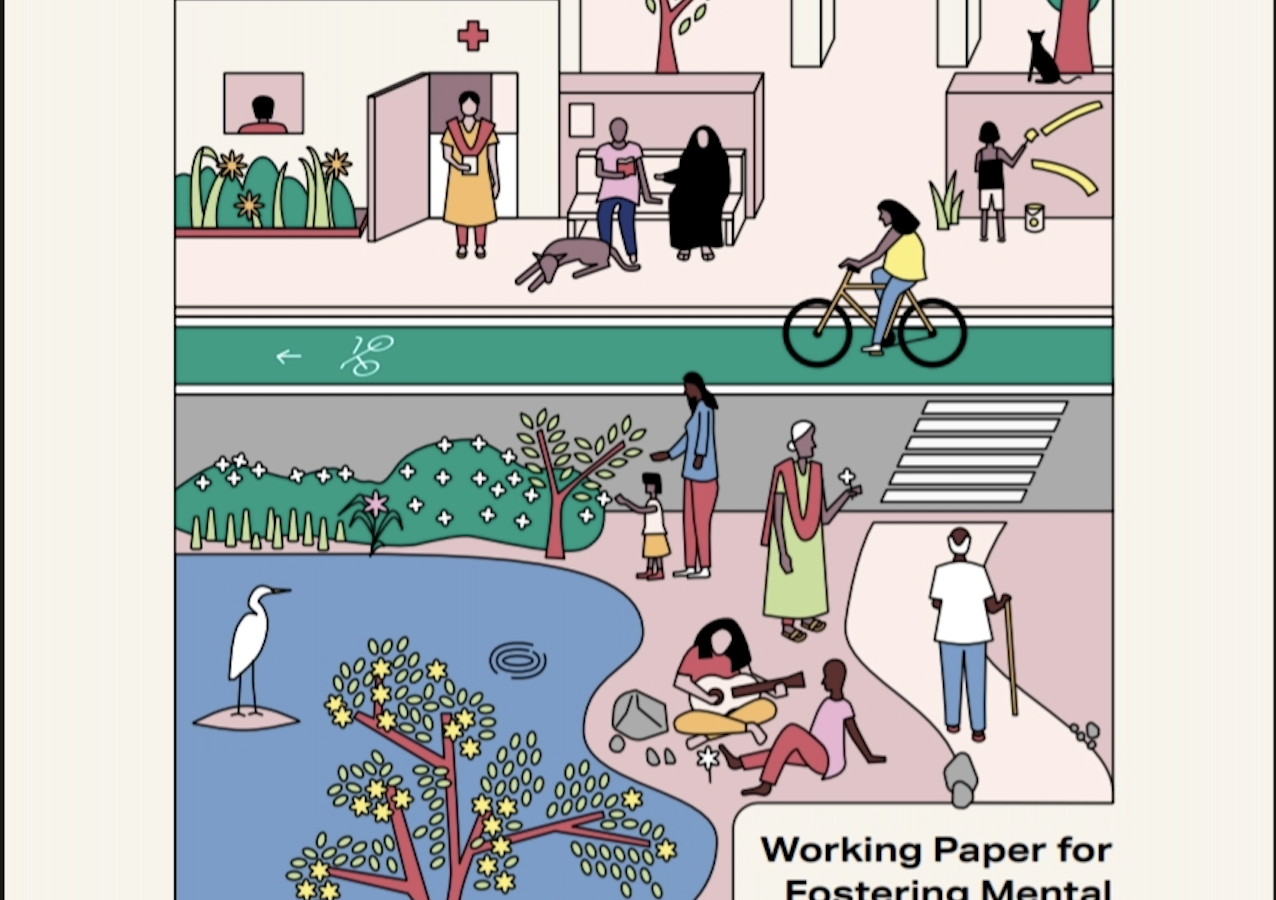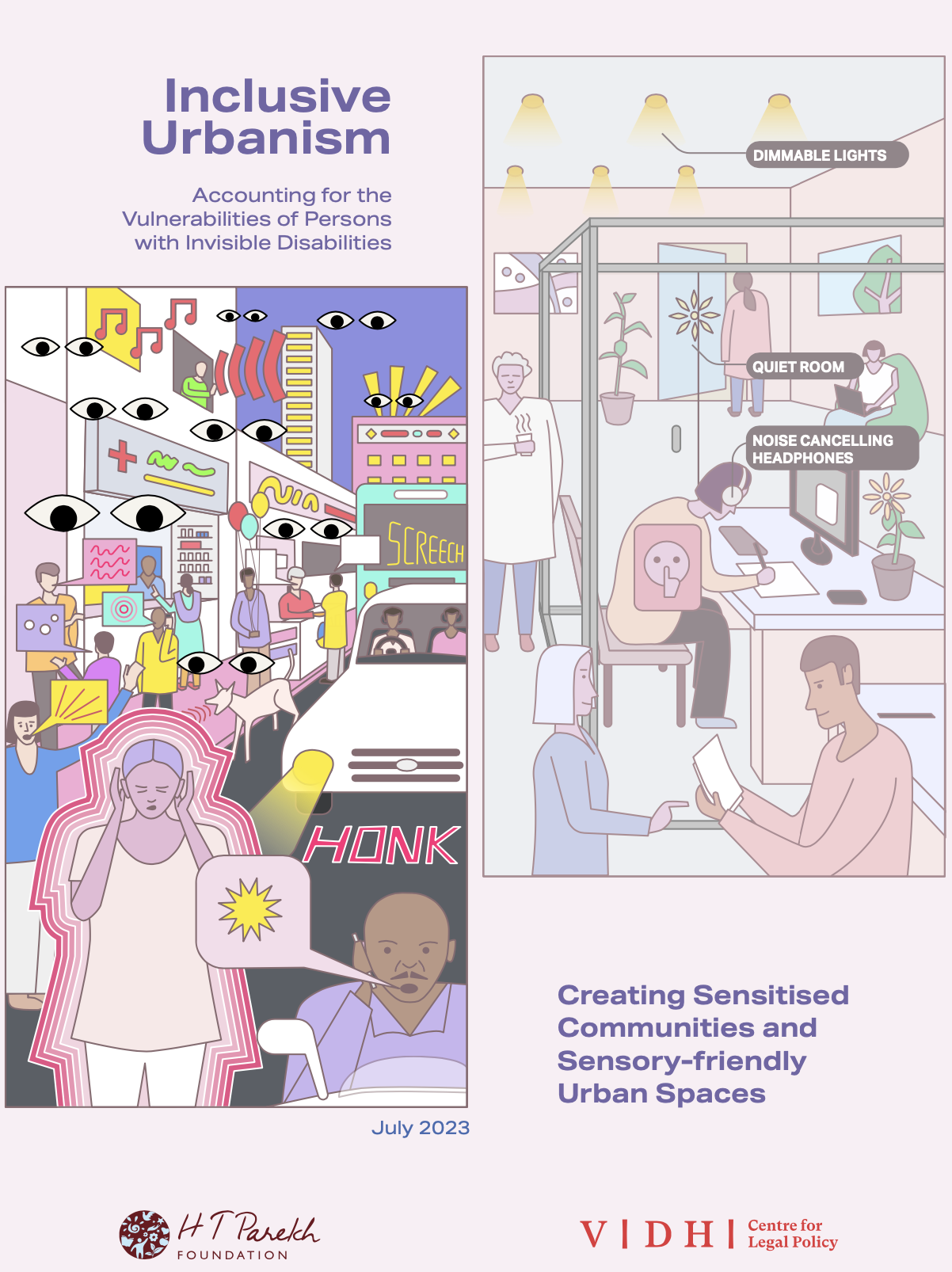
Fostering Mental Health in the City
Inclusive Urbanism: Accounting for the Vulnerabilities of Persons with Invisible Disabilities.
Context
India has been grappling with a profound mental health crisis, with one among every seven people being reported to be affected by a mental disorder. Despite this, studies reveal that only 1 in 10 individuals with mental health disorders in India received evidence-based treatment (i.e., treatment backed by scientific evidence), with the treatment gap ranging from 70-92% for mental disorders. The situation has been exacerbated by the COVID-19 pandemic, as a fallout of which there has been a 20% surge in the number of individuals facing mental health challenges. This crisis stands compounded by significant underfunding in mental healthcare and related services with only 1.03%, i.e., Rs. 919 crores out of a total health budget of Rs. 89,165 crores being allocated to it in the fiscal year 2023-24 .
The substantial correlation between the rapid pace of urbanisation and increased prevalence of mental illness in urban settings is now well recognised and explored. The second of four papers in the ‘Inclusive Urbanism’ working paper series, titled, ‘Fostering Mental Health in the City: A Legal Perspective’, carries forward and builds upon the work of the first context setting paper to explore the question of accessibility in cities and urban spaces, particularly for those with mental illness and psychosocial disabilities. This is done with a focus on Karnataka, notably Bengaluru.
Key Terms and Approaches
The paper discusses the key concepts and terms used by different stakeholders and their implications. For instance, while clinical practitioners rely on diagnostic categories, psychiatric social workers emphasise the associated social aspects of terms to highlight the importance of community support and well-being. The contours of ‘mental health’ as realising potential, productivity, coping with and contributing to society, and ‘psychological well-being’ in terms of resilience, cognition and social well-being are outlined in the paper. It also distinguishes between ‘mental illness’ and ‘mental retardation’ as defined under the Mental Healthcare Act, 2017 (‘MHCA’). How urban accessibility must be understood and reimagined when it comes to persons with mental illness, in light of the global (UNICEF) understanding of ‘psychosocial disability’ is then discussed in the paper.
Highlighting the critical link between mental health and quality of life in urban areas, it underscores the need to integrate mental health considerations into urban planning to improve residents’ quality of life by proposing several approaches to city planning. These approaches include the ‘Right to the City’ approach, emphasising equal access and participation; the ‘Restorative Urbanism’ approach, which places mental health and social well-being at the centre of urban planning; the ‘Green Cities’ approach, which highlights nature’s positive impact on mental health; and the ‘Behavioral Access Model’, which underscores the importance of social support and the role of families and communities in accessing healthcare services.
Socio-legal Discussion of Mental Illness
Tracing the impact of colonial-era laws that led to institutionalisation, criminalization, and identity erasure, the paper examines the historical treatment of individuals with mental illness and psychosocial disabilities in India. It discusses the evolution of mental health legislation in India, from the Mental Health Act, 1987 to the The Persons with Disabilities (Equal Opportunities, Protection of Rights and Full Participation) Act, 1995, contrasting their respective approaches (spanning custodial and welfare oriented) to their manner of defining and protecting the rights of persons with disabilities. The paper also examines the existing legal framework, emphasising the focus of RPWDA on societal barriers and securing rights and entitlements, while the MHCA witnesses a shift towards the social model in emphasising affordability, accessibility, besides the role of caregivers and the community. Additionally, it explores the role of municipal laws in Karnataka in promoting accessible mental healthcare and well-being within urban communities, drawing attention to the responsibilities and powers vested in urban local bodies related to essential urban infrastructure and services.
Issues and Way Forward
The paper highlights the complex challenges plaguing India’s mental health landscape, identifying critical issues that demand immediate attention, including societal stigma and lack of awareness, the need for more inclusive accessibility guidelines, challenges in delivering quality mental healthcare, fragmented policies across ministries, and structural obstacles within urban planning frameworks. It then presents a multifaceted approach to bridge the existing gaps, emphasising the importance of integrating a mental health perspective into urban planning and design, besides underscoring the urgent requirement for comprehensive reforms and more obligatory grassroots-level measures to improve the situation. It does so through case studies that serve as examples of best practices.
Completed in May, 2023, this paper makes a case for rethinking what accessibility for persons with mental illness and psychosocial disability means in the city, especially in regard to accessing public space, healthcare and mental healthcare services. The overarching goal is to initiate discourse that reshapes the understanding of mental health in urban contexts.




